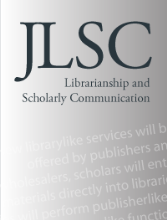At a time when the the rate of retracted articles continues to rise, scholars and students must guard against using poor publications in their research and getting tricked by untrustworthy publishers and conferences when publishing and promoting their work.
Here you'll find guidance on identifying questionable publishers and retracted articles, information on the impact of these issues on research integrity, and news and developments in the field of scholarly publishing.
Please note: This guide is for informational and reference purposes only, and should not be considered legal advice.
To watch the recording of the spring 2024 presentation on this topic, please email Vicky Ludas Orlofsky.
"Hijacked" journals mimic legitimate journals by adopting their titles, ISSNs, and other metadata. (Retraction Watch, n.d.)
The process by which manufactured manuscripts are submitted to a journal for a fee on behalf of researchers with the purpose of providing an easy publication for them, or to offer authorship for sale. (Committee on Publication Ethics, 2020)
Predatory journals and publishers are entities that appear to be legitimate but prioritize self-interest at the expense of scholarship. (Grudniewicz et al., 2019)
Similarly, predatory conferences claim to be legitimate academic conferences but focus more on profit than the good of the discipline. (Pecorari, 2021)
A claim of research misconduct includes one or more of the following:
A mechanism for correcting the literature and alerting readers to articles that contain such seriously flawed or erroneous content or data that their findings and conclusions cannot be relied upon. (Committee on Publication Ethics, 2019)
If you'd like to know what's happening in the world of scholarly publishing, these newsletters collect headlines and provide context on a range of issues.
Scholarly journals available through the Library.




